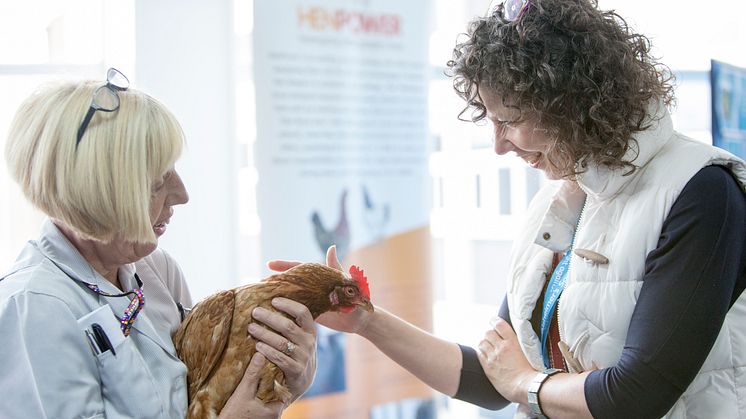
Press release -
British people are living longer but have more ailments, study reveals
People in the UK are living longer but are coping with more medical ailments causing illness or disability in their older years, according to a major new international study published in The Lancet today.
An international consortium of researchers working on the Global Burden of Disease study analysed more than 300 conditions affecting people living in 188 countries between 1990 and 2013.
The study – which is the first to examine ‘health loss’ – reveals that a complex mix of fatal and non-fatal ailments are causing a loss of health in individuals worldwide. It was led by the Institute of Health Metrics and Evaluation (IHME) at the University of Washington, USA, and was co-authored by Dr Ivy Shiue, a senior researcher in the Department of Healthcare at Northumbria University, UK.
The researchers used DALYs, or disability-adjusted life years, to compare the health of different populations. One DALY equals one lost year of healthy life.
They found that although life expectancy in the UK increased, this was not necessarily spent in good health, with Alzheimer’s disease becoming more prevalent, particularly in men.
During the 23-years of the study, UK males gained 6.2 years of life expectancy, of which only 4.7 years were considered to be ‘healthy life expectancy’. Women gained 4.4 years, with 3.3 of these years considered to be healthy.
The fastest‐growing leading causes of health loss for British men were diabetes, Alzheimer’s disease and diseases of the sense organs, such as vision and hearing loss, which increased at rates of 65.3%, 54%, and 24.4%, respectively. For women, the largest increases occurred for Alzheimer’s disease (21.6%), low back and neck pain (16.8%) and lung cancer (12.6%).
In the UK, the main causes of health loss were ischemic heart disease, cerebrovascular disease, chronic obstructive pulmonary disease, lung cancer, Alzheimer’s disease, depressive disorders, falls, lower back and neck pain, skin diseases and sense organ diseases.
Only ischemic heart disease, lower back and neck pain, cerebrovascular disease and chronic obstructive pulmonary disorder (COPD) were among the leading causes of health loss globally.
Dr Shiue said: “Healthy life expectancy takes into account not just mortality, but the impact of non-fatal conditions and summarises the years lived with disability and the years lost due to premature mortality. The increase in healthy life expectancy has not been as dramatic as the growth of total life expectancy, and as a result, people are living more years with illness and disability.
“The fact that people in the UK are living longer is encouraging, but we also want to live healthier. Conditions that disproportionately affect the older population – like Alzheimer’s disease – are increasingly impacting on Britain’s overall health. This means an increased nationwide burden on caregiving as well.”
Dr Christopher Murray, Director of the Institute for Health Metrics and Evaluation, added: “Factors including income and education have an important impact on health but don’t tell the full story. Looking at healthy life expectancy and health loss at the country level can help guide policies to ensure that people everywhere can have long and healthy lives no matter where they live.”
The study, titled Global, regional, and national disability‐adjusted life years (DALYs) for 306 diseases and injuries and healthy life expectancy (HALE) for 188 countries, 1990‐2013: quantifying the epidemiological transition, can be downloaded here.
Topics
Northumbria is a research-rich, business-focussed, professional university with a global reputation for academic excellence. To find out more about our courses go towww.northumbria.ac.uk
If you have a media enquiry please contact our Media and Communications team at media.communications@northumbria.ac.uk or call 0191 227 4571.

















